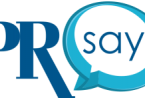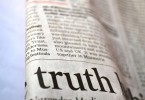The final PRSA 2011 Ethics Month Tweet chat, held earlier this week, demonstrated why ethical communications continues to interest public relations professionals. Encompassing a wide range of topics on the state of ethics in PR, #PRethics chat saw a spirited debate on where ethics stand in relation to a PR professionals’ daily work.
You can get a full transcript of the chat here and a PDF version here. Read on for the CliffNotes version.
The chat kicked off with a discussion on the best way for PR professionals to build trust between brands and consumers. Chatters varied in their opinions, ranging from advising companies to use brutal honesty to weighing the realities and challenges of PR and marketing in the digital age. @carolinamadrid was decidedly on the “pro-honesty” side, Tweeting that to build trust, brands must utilize “Honesty — as difficult as it may be at times” in all their communications.
@jgombita offered perhaps the most succinct advice for how PR professionals can build trust between brands and consumers when she Tweeted:
Simple: Don’t lie. Don’t spin. Ensure the organizational narrative is honest and that communication is frequent.
The chat then shifted to how PR professionals can best utilize ethical communications throughout their organizations and client work. @prcarrs offered this helpful tip to those seeking guidance on this issue:
Ethics are most effective when they are layered. PRSA Code of Ethics personal code, then agency/org as another layer #PRethics.
Among the other helpful tips on display was a series of tweets by @thinkbluepr, who is a PR professional for IBM. On the subject of being ethical in social media communications and marketing, @thinkbluepr said, “@IBM’s social media policy states we always identify ourselves as IBMers on social networks.” @thinkbluepr also offered #PRethics chatters a helpful post on corporate character as the purpose of the enterprise by Jon Iwata, the noted CMO at IBM.
The chat concluded with discussions on whether PR professionals and PR firms should serve as the ethical conscience of their companies and/or clients. Again, @prcarrs led with sound advice, writing that “Ethics should run throughout and be a part of the company or client’s culture,” but should not serve as a company’s sole ethical conscience. @jgombita agreed, Tweeting that it is “preferable to say that PR should provide ‘counsel’ as to the company’s conscience/ethics, rather than ‘champion’” ethical business practices.
Follow the #PRethics conversation here — or read the transcript, embedded below. You can find more commentary and insight on PRSA’s Ethics Month here.
Keith Trivitt is editor of PRSAY and associate director of public relations at the Public Relations Society of America.







As far as ethics are concerned I feel that there is a responsibility that a public relations firm carries with their clients. Now a days news is breaking 24 hours a day 7 days a week, and it is up to a public relations firm to make sure that the client is not in the news for anything bad. Consumers are more trusting of transparent companies. The more a consumers knows about the entity the more likely they are to do business with the company. As PR for that company it is their job to make that happen to the best of their ability. They must do this in accord with the code of ethics given by the PRSA. I feel that as long as PR professionals are honest at all times everything should be fine. There are so many avenues for learning about companies that average consumers are more knowledgeable and not easily fooled. Respect the integrity and the position of the audience and be truthful.